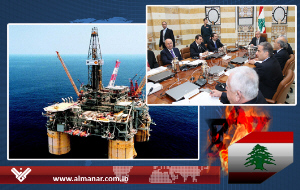Second episode of Black Gold in Lebanon revealed the historical Zionist greed in Lebanese natural resources.
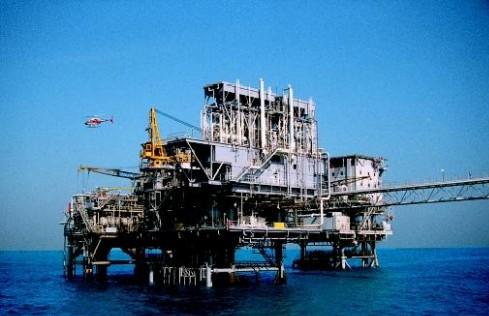 Israeli greed in Lebanese natural oil resources haven’t suddenly emerged. Global Research website had post in 2006 an article of Prof. Michel Chossudovsky, in which he interrelated between the Zionist aggression on Lebanon 2006 and a Zionist oil strategy through which the enemy is willing to control the Mediterranean coast from Occupied Palestine (south) till the Turkish borders, in order to play a major role in oil re-export to the western countries.
Israeli greed in Lebanese natural oil resources haven’t suddenly emerged. Global Research website had post in 2006 an article of Prof. Michel Chossudovsky, in which he interrelated between the Zionist aggression on Lebanon 2006 and a Zionist oil strategy through which the enemy is willing to control the Mediterranean coast from Occupied Palestine (south) till the Turkish borders, in order to play a major role in oil re-export to the western countries.
OFFICIAL IGNORING
Israeli greed in land, sea and oil is unlimited. Even though, Lebanese governments had ignored the oil and maritime border issues.
In 1993, the cabinet of Lebanon signed the UN Convention on the Law of the Sea, which took place in 1994. Until the years 1994 and 2005, Lebanese government didn’t define its requirements with respect to that law.
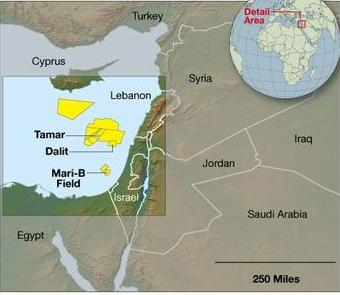 Territorial Water
Territorial Water
The term "territorial waters" used informally to describe an area of water over which a state has jurisdiction, including internal waters, and the exclusive economic zone.
Territorial water, or a territorial sea, is a belt of coastal waters extending at most 12 nautical miles (22 km; 14 mi) from the baseline (usually the mean low-water mark) of a coastal state. It is regarded as the sovereign territory of the state, although foreign ships (both military and civilian) are allowed innocent passage through it.
Exclusive Economic Zone
However, the exclusive economic zone extends from the outer limit of the territorial sea to a maximum of 200 nautical miles (370.4 km) from the territorial sea baseline. A coastal nation has control of all economic resources within its exclusive economic zone, including fishing, mining, oil exploration, and any pollution of those resources. Yet, it cannot prohibit passage or loitering above, on, or under the surface of the sea that is in compliance with the laws and regulations adopted by the coastal State in accordance with the provisions of the UN Convention, within that portion of its exclusive economic zone beyond its territorial sea.
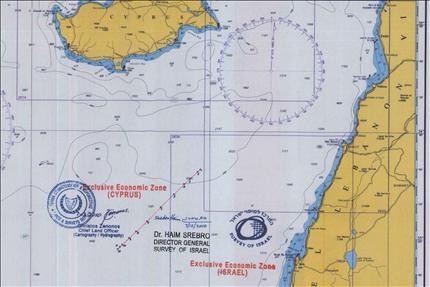 Brigadier General Dr. Amin Hoteit believed that since 1994, Lebanon should have to issue legislations related to marine environment within the economic zone in accordance to the Law of the Sea, as well as to finalize maps through which its maritime and economic zone borders could be defined. Then, the file should be presented before the UN.
Brigadier General Dr. Amin Hoteit believed that since 1994, Lebanon should have to issue legislations related to marine environment within the economic zone in accordance to the Law of the Sea, as well as to finalize maps through which its maritime and economic zone borders could be defined. Then, the file should be presented before the UN.
Moreover, if this would overlap with another state's territorial sea, as it is the case with Cyprus, there should be an agreement with Cyprus to determine the long line of separation between the two countries’ borders, and in accordance with the international convention as well.
“The successive Lebanese governments didn’t act as necessary with respect to this file. Even in 2005 when Israelis declared oil fields in the economic zone off the shores of Acre, the government neither acted, nor made any agreement with Cyprus,” Hotiet added.
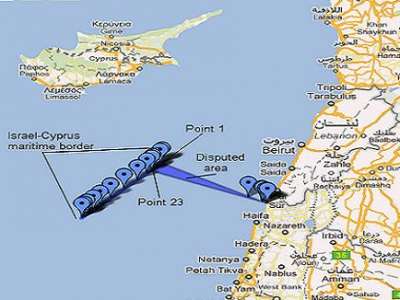 SINIORA AND CYPRUS
SINIORA AND CYPRUS
In 2005, the so-called amputated government of Siniora formulated a five-member committee to start negotiations with Cyprus.
The committee contacted the Middle Eastern island; however, it dealt recklessly in this regard, which led to the Lebanese concession of many rights for the benefit of Cyprus and the interest of the contracting parties with it.
Al-Manar Website previously revealed that Lebanon’s cabinet had received information which assure that Cypriots drew the ‘Point 1’ within the maritime borders with Lebanon, i.e. going back to the northern side of the Mediterranean to avoid any possible problems with the Israeli side. This means that real Lebanese maritime border moved to the south of Mediterranean towards ‘Point 23’, which later drawn by Lebanon.
Dr. Hotiet explained the mistake committed in determining the points 1 and 23, where an oblique line was drawn at about 22 degrees of the baseline, which should be the limit of economic borders in accordance with the standards set by the international convention. This had directly deprived Lebanon of about 1.3 km of its territorial zone.
The same oblique line entered 17 kms in the Lebanese economic zone, which also deprived Lebanon of 882 km2. This zone contains about 56 % of oil estimated to be in the whole Lebanese area, which has the best oil and the highest quality of gas.
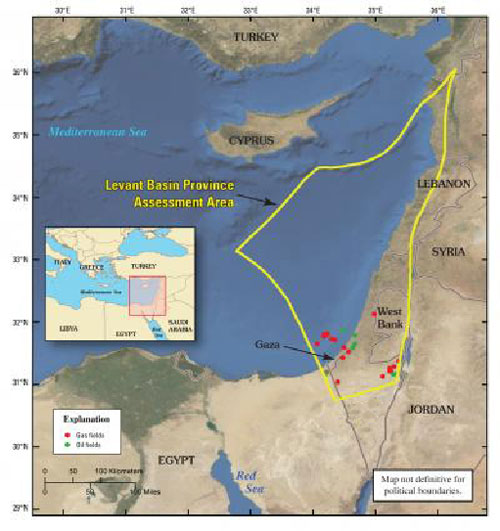 LEBANON - , CYPRUS +
LEBANON - , CYPRUS +
A big mistake was made by the Lebanese committee which signed the agreement with Cyprus, headed by Hassan Chaban – the then Directorate General of Land and Marine Transport.
A high rank diplomatic source considered that, in demarcation of Median Line, the committee depended upon vertical lines connecting the notches on the beach, instead of the baselines that Cyprus had filed to the United Nations years ago, thus withdrawing from the median line in favor of Cyprus.
Ten miles were abandoned in both directions, south and north of the Mediterranean, during the demarcation of median line between Lebanon and Cyprus.
After that, Lebanese cabinet continued the demarcation of the Lebanese exclusive economic zone, based upon the demarcation set in the agreement with Cyprus.
The agreement in subject had drawn a line of equal dimensions from both directions (south and north) between the three concerned parties (Lebanon, Cyprus and the Zionist entity) in accordance with the geometric calculations agreed upon with the non-specialized Lebanese committee.
Lebanon filed to the UN Secretary General the coordinates of the geographic points of its southern and south-western exclusive economic zone, which is not included in the agreement with Cyprus, without consultation with it.
The Lebanese mistake, however, encouraged the Israeli part to work on oil exploration and determine its points of interest from oil and gas, via signing agreement with Cyprus. “This deal, if put in action, will deprive Lebanon of 60% of its natural oil fortune,” Dr. Hotiet concluded.
To be continued …
In Part III: How to Get out of this Crisis?
See also:
Black Gold in Indebted State I
